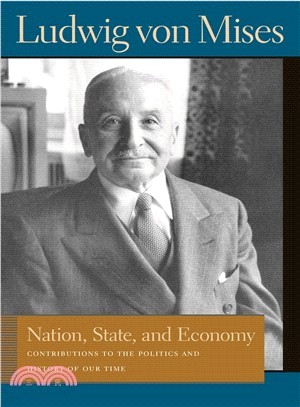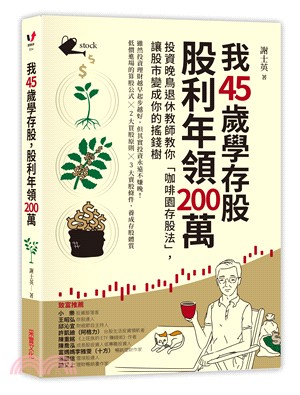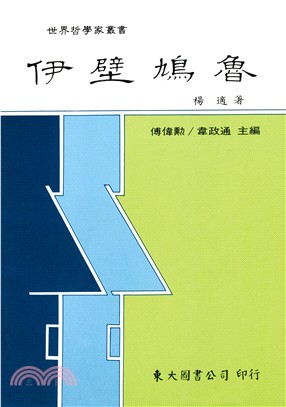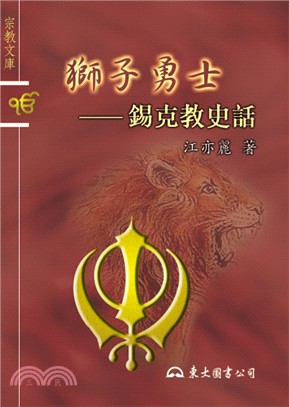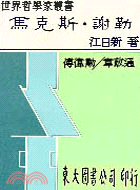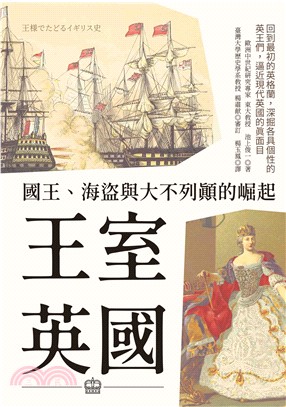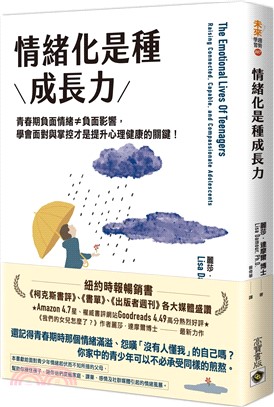相關商品
商品簡介
商品簡介
In 1919, Mises explained how the first World War had come about, distinguishing between nations, states, and economies. Prior to the nineteenth century, the boundaries of a state were determined by conquest, coercion, rulers, and princes; the people had nothing to say in the matter. A nation, composed of persons speaking the same language and to a large extent sharing the same culture, was an essentially neutral concept, in no way incompatible with a liberal economy, individual freedom, democracy, and the right of self-determination. Yet this peaceful nationalism gave way to militarism, international conflict, and war. Why?
Nations, like individuals, learn from experience. The largely liberal movement for a ?greater Germany,” composed of Germany, German-Austria, and scattered enclaves of German nationals in neighboring countries, was frustrated by the state in the form of the Kingdom of Prussia, which became the German Empire, and the Hapsburg Empire of Austria-Hungary. Essential to Mises’s concept of a classical liberal economy is the absence of interference by the state. Under the chancellorship of Bismarck, the essentially reactionary German state became increasingly intrusive in every aspect of the nation?economic, social, and of course political. As the German state sought to become stronger by forcefully acquiring additional territory, German nationalism became increasingly militaristic and imperialistic, leading to international conflict and war. In World War I, Germany and its allies were overpowered by the Allied Powers in population, economic production, and military might. Because Germany needed imports to survive, much less to wage war, and was cut off from foreign suppliers, its defeat was inevitable.
Mises believed that Germany should not seek revenge for the ?fetters . . . forced upon German development by the peace of Versailles.” Rather, his theme throughout this book is that Germany should adopt liberal ideas and a free market economy by expanding the international division of labor, which would help all parties. ?For us and for humanity,” Mises wrote, ?there is only one salvation: return to rationalistic liberalism.”
Ludwig von Mises (1881?1973) was the leading spokesman of the Austrian School of Economics throughout most of the twentieth century. He earned his doctorate in law and economics from the University of Vienna in 1906. In 1926, Mises founded the Austrian Institute for Business Cycle Research. From 1909 to 1934, he was an economist for the Vienna Chamber of Commerce. Before the Anschluss, in 1934 Mises left for Geneva, where he was a professor at the Graduate Institute of International Studies until 1940, when he emigrated to New York City. From 1948 to 1969, he was a visiting professor at New York University.
Bettina Bien Greaves is a former resident scholar, trustee, and longtime staff member of the Foundation for Economic Education. She has written and lectured extensively on topics of free market economics. Her articles have appeared in such journals as Human Events, Reason, and The Freeman: Ideas on Liberty. A student of Mises, Greaves has become an expert on his work in particular and that of the Austrian School of economics in general. She has translated several Mises monographs, compiled an annotated bibliography of his work, and edited collections of papers by Mises and other members of the Austrian School.
Nations, like individuals, learn from experience. The largely liberal movement for a ?greater Germany,” composed of Germany, German-Austria, and scattered enclaves of German nationals in neighboring countries, was frustrated by the state in the form of the Kingdom of Prussia, which became the German Empire, and the Hapsburg Empire of Austria-Hungary. Essential to Mises’s concept of a classical liberal economy is the absence of interference by the state. Under the chancellorship of Bismarck, the essentially reactionary German state became increasingly intrusive in every aspect of the nation?economic, social, and of course political. As the German state sought to become stronger by forcefully acquiring additional territory, German nationalism became increasingly militaristic and imperialistic, leading to international conflict and war. In World War I, Germany and its allies were overpowered by the Allied Powers in population, economic production, and military might. Because Germany needed imports to survive, much less to wage war, and was cut off from foreign suppliers, its defeat was inevitable.
Mises believed that Germany should not seek revenge for the ?fetters . . . forced upon German development by the peace of Versailles.” Rather, his theme throughout this book is that Germany should adopt liberal ideas and a free market economy by expanding the international division of labor, which would help all parties. ?For us and for humanity,” Mises wrote, ?there is only one salvation: return to rationalistic liberalism.”
Ludwig von Mises (1881?1973) was the leading spokesman of the Austrian School of Economics throughout most of the twentieth century. He earned his doctorate in law and economics from the University of Vienna in 1906. In 1926, Mises founded the Austrian Institute for Business Cycle Research. From 1909 to 1934, he was an economist for the Vienna Chamber of Commerce. Before the Anschluss, in 1934 Mises left for Geneva, where he was a professor at the Graduate Institute of International Studies until 1940, when he emigrated to New York City. From 1948 to 1969, he was a visiting professor at New York University.
Bettina Bien Greaves is a former resident scholar, trustee, and longtime staff member of the Foundation for Economic Education. She has written and lectured extensively on topics of free market economics. Her articles have appeared in such journals as Human Events, Reason, and The Freeman: Ideas on Liberty. A student of Mises, Greaves has become an expert on his work in particular and that of the Austrian School of economics in general. She has translated several Mises monographs, compiled an annotated bibliography of his work, and edited collections of papers by Mises and other members of the Austrian School.
主題書展
更多
主題書展
更多書展本週66折
您曾經瀏覽過的商品
購物須知
外文書商品之書封,為出版社提供之樣本。實際出貨商品,以出版社所提供之現有版本為主。部份書籍,因出版社供應狀況特殊,匯率將依實際狀況做調整。
無庫存之商品,在您完成訂單程序之後,將以空運的方式為你下單調貨。為了縮短等待的時間,建議您將外文書與其他商品分開下單,以獲得最快的取貨速度,平均調貨時間為1~2個月。
為了保護您的權益,「三民網路書店」提供會員七日商品鑑賞期(收到商品為起始日)。
若要辦理退貨,請在商品鑑賞期內寄回,且商品必須是全新狀態與完整包裝(商品、附件、發票、隨貨贈品等)否則恕不接受退貨。




